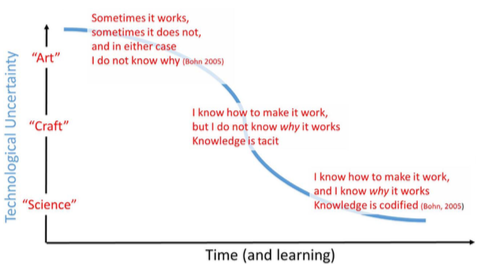When Risks Cannot Be Seen: Regulating Uncertainty in Emerging Technologies
Commercializing an emerging technology that employs an immature production process can be challenging, particularly when there are many different sources of uncertainty. In industries with stringent safety requirements, regulatory interventions that ensure safety while maintaining incentives for innovation can be particularly elusive. We use the extreme case of metal additive manufacturing (an emerging technology with many sources of process uncertainty) in commercial aviation (an industry where lapses in safety can have catastrophic consequences) to unpack how the characteristics of a technology may influence the options for regulatory intervention. Based on our findings, we propose an adaptive regulatory framework in which standards are periodically revised and in which different groups of companies are regulated differently as a function of their technological capabilities. We conclude by proposing a generalizable framework for regulating emerging pro- cess-based technologies in safety-critical industries in which the optimal regulatory configuration depends on the industry structure (number of firms), the performance and safety requirements, and the sources of technological uncertainty.


Leave a Reply